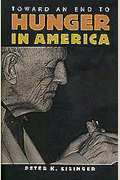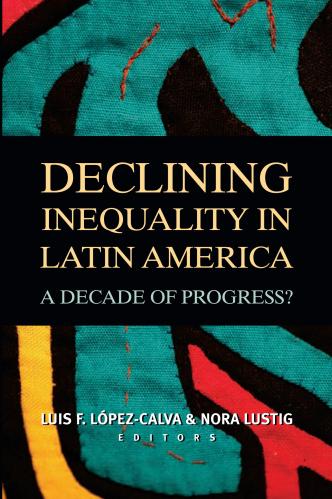What’s the latest thinking in fiscal and monetary policy? The Hutchins Roundup keeps you informed of the latest research, charts, and speeches. Want to receive the Hutchins Roundup as an email? Sign up here to get it in your inbox every Thursday.
Policy response to pandemic averted decrease in consumption for vulnerable families
Bruce D. Meyer and Connacher Murphy from the University of Chicago and James X. Sullivan from the University of Notre Dame, using nationally representative microdata, find that following the onset of the pandemic, those at the bottom of the consumption distribution experienced modest or no reductions in consumption, while those higher up saw progressively larger and significant falls that were concentrated in the 2nd quarter of 2020.The decline in consumption was most pronounced for families with at least some college education near the top of the consumption distribution and seniors in the top half of the distribution. Family income showed a different pattern. Relative to 2019, incomes increased across the board in the first half of 2020 and flattened out in the second half of the year. The authors conclude that the fiscal policy response helped prevent consumption from falling for the most disadvantaged families, but caution that their results do not imply that the pandemic did not have any negative impacts on economic well-being for disadvantaged families.
Managers with MBAs reduce their employees’ wages
The rise of managers with business degrees has contributed to the decline in the labor share of income and slowdowns in wage growth in the U.S. and Denmark over the last several decades, find Daron Acemoglu of MIT, Daniel le Maire of the University of Copenhagen, and Alex He of the University of Maryland. Using U.S. data, the authors show that when a “business manager” (a CEO with a business degree) takes over leadership of a firm from a non-business manager, that firm experiences a 5% decline in its labor share and a 6% decline in employees’ wages over the subsequent five years, as well as a 3% increase in profits and a 5% increase in stock market value. The authors find similar results using Danish administrative data and using CEO deaths or retirements as a source of variation. They suggest that one mechanism behind this finding could be differences in “rent-sharing” behaviors between business and non-business managers. To investigate this channel, the authors study firm-specific shocks to export demand in Denmark, finding that wages at business manager-led firms stay flat in response to increases in demand while wages at non-business manager-led firms increase. The authors argue that the effect of business managers on wages is attributable to business schools’ focus on maximizing shareholder value and cutting unnecessary costs. They estimate that the increasing fraction of workers employed by business managers at U.S. companies could account for around 20% of the overall decline in the labor share of income and 15% of the slowdown in real wage growth in the U.S. since 1980.
Scholarships that forgo verification of financial eligibility increase low-income student enrollment
Elizabeth Burland of the University of Michigan and co-authors conduct a controlled experiment in Michigan where low-income high-school students meeting certain academic criteria are assigned to one of three groups: an unconditional offer of full tuition and fees for four years if admitted (the HAIL scholarship), an offer of full tuition and fees for up to four years conditional on verification of financial eligibility if admitted (“Go Blue” encouragement), or typical recruitment materials (the control group). The unconditional HAIL scholarship increased applications by 28 percentage points, admission by 10 percentage points and enrollment by 9 percentage points relative to the control group. In contrast, the Go Blue program increased applications by 8 percentage points, admission by 3 percentage points, and enrollment by only 1 percentage point relative to the control group. Students in all three groups were similarly likely to fill out the two required financial aid forms, suggesting that these differences are not the result of burdensome aid forms. Instead, the authors attribute the high application rates of those in the HAIL scholarship group to the high value placed on financial certainty. The lower enrollment rates of the Go Blue group could be attributable to lower financial aid than expected or desired, they say; indeed, those in the HAIL scholarship received $2,700 more in grants than those in the Go Blue encouragement group, on average. The authors conclude that, while more expensive, a broad-based free tuition program would increase college attendance by low-income students more than programs requiring financial verification.
Chart of the week: Ruble rises amid peace talks
Chart courtesy of The New York Times
Quote of the week:
“Look, budgets are value statements; the President has been clear about that. What he believes is fair is to ask billionaires and those worth over $100 million to pay about the same tax rates as teachers, nurses and firefighters. That’s all he’s asking. They’re supposed to pay taxes on this unrealized income,” says OMB Director Shalanda Young.
“They often use loopholes and deferments not to do that. So, this president has been very clear. What we’re not going to do is send forward a budget that cuts benefits to our seniors, but he will ask the 400 wealthiest people in this country [who are] worth more than 150 million other Americans [to pay taxes]. He does not believe that’s right and he is calling on them to pay their fair share.”
The Brookings Institution is financed through the support of a diverse array of foundations, corporations, governments, individuals, as well as an endowment. A list of donors can be found in our annual reports published online here. The findings, interpretations, and conclusions in this report are solely those of its author(s) and are not influenced by any donation.
The Brookings Institution is committed to quality, independence, and impact.
We are supported by a diverse array of funders. In line with our values and policies, each Brookings publication represents the sole views of its author(s).











Commentary
Hutchins Roundup: Consumption, business managers, and more
March 31, 2022